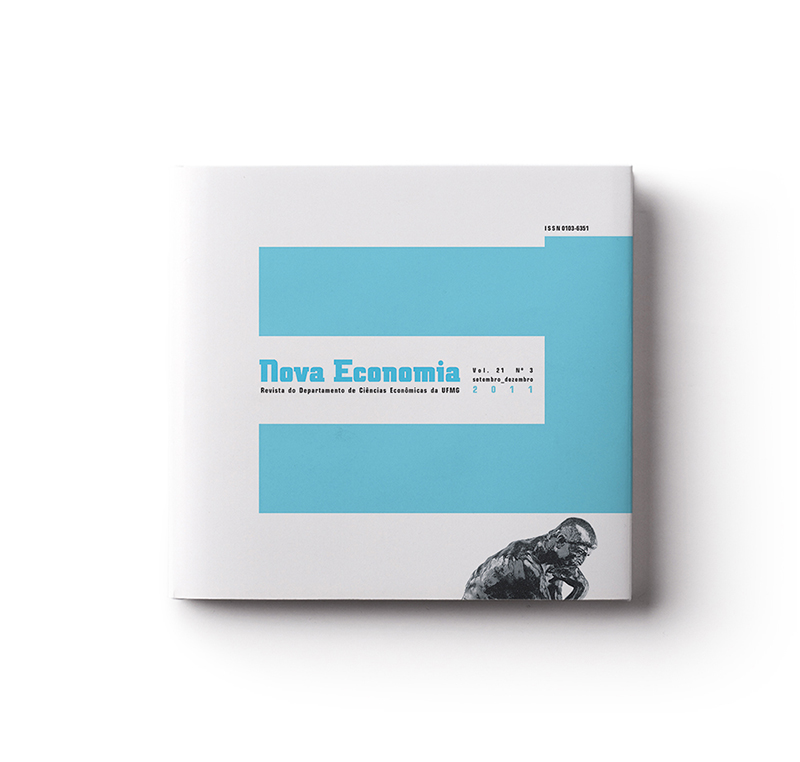Merchants and councilors: intellectual divergences in early 17th century British economic thought
Palavras-chave:
pensamento econômico pré-clássico, mercantilismo, século XVII, Inglaterra Stuart, Thomas MunResumo
Durante o início da década de 1620, a Inglaterra enfrentou um período de intensas dificuldades econômicas que despertou o interesse de muitos pela reflexão acerca dos fenômenos em curso. A década testemunhou o surgimento das mais relevantes obras econômicas do início do período Stuart; porém, o debate não esteve restrito às confrontações abstratas dos autores especializados. A questão fundamental em disputa nas controvérsias entre Malynes, Misselden e Mun – como integrar a moeda e o comércio internacional em uma explicação coerente dos fenômenos econômicos – foi também objeto de muita atenção na esfera pública, em sentido amplo. A Sessão Parlamentar de 1621, em particular, colocou em evidência não apenas a relevância fundamental do tema para a compreensão dos problemas econômicos da Inglaterra, mas também a enorme complexidade envolvida em sua investigação. Ao reunir todos esses elementos, o artigo busca articular um retrato mais denso a respeito do estado corrente das ideias econômicas na Inglaterra do início do século XVII.Downloads
Publicado
2012-05-07
Como Citar
SUPRINYAK, C. E. Merchants and councilors: intellectual divergences in early 17th century British economic thought. Nova Economia, [S. l.], v. 21, n. 3, 2012. Disponível em: https://revistas.face.ufmg.br/index.php/novaeconomia/article/view/1595. Acesso em: 26 fev. 2026.
Edição
Seção
Números Regulares
Licença
Autore[a]s que publicam nesta revista concordam com os seguintes termos:
- Autore[a]s mantém os direitos autorais e concedem à revista o direito de primeira publicação, com o trabalho simultaneamente licenciado sob a Licença Creative Commons Atribuição 4.0 Internacional que permite o compartilhamento do trabalho com reconhecimento da autoria e publicação inicial nesta revista.
- Autore[a]s têm autorização para assumir contratos adicionais separadamente, para distribuição não-exclusiva da versão do trabalho publicada nesta revista (ex.: publicar em repositório institucional ou como capítulo de livro), com reconhecimento de autoria e publicação inicial nesta revista.
- Autores têm permissão e são estimulados a publicar e distribuir seu trabalho online (ex.: em repositórios institucionais ou na sua página pessoal) a qualquer ponto antes ou durante o processo editorial, já que isso pode gerar alterações produtivas, bem como aumentar o impacto e a citação do trabalho publicado (Veja O Efeito do Acesso Livre).




